RURAL COLORADO — It was New Year’s Eve 2021 on a dark, slick highway in the pitch-black Colorado mountains, and professional driver Tony Lee Bolick’s rig decided to give him trouble.
He pulled over safely, then wondered what to do next.
There was no cell or any other kind of service that he could use to call for help.
Then he remembered he still had his trusty Cobra29 Classic CB radio; it became his only lifeline to the outside world.
But even that looked useless after several hours of trying and failing to find someone to answer his calls. He said he saw several trucks pass by, but none answered.
That’s likely because many truckers today no longer have CBs in their cabs. Or, if they do have them installed, they may not always be switched on.
Bolick said he finally raised another driver who offered to help him. That kind trucker called Bolick’s dispatcher when he could get a signal out on his cell phone, letting them know Bolick’s predicament.
“About four hours, later I decided to drop my trailer and limp back to the last town I’d came through,” Bolick said.
A 2019 survey of 3.5 million professional drivers conducted by Road Pro Brands showed that just 75% use a CB daily. While that number seems solid, not all drivers keep their CBs on as they did in the days without cell phones and internet service.
In short, the CB is no longer the primary communication line outside the cab and hasn’t been for years.
Tuck Calahan, a long-haul trucker based out of Texas, said that with satellite radio, internet and other gadgets that constantly provide steams of information, the CB is one of the last things he pays attention to.
“It’s more of an ‘if I am bored, I will turn it on’ scenario,” Calahan said. “I have used it in bad weather or if I can’t get any signals from cell or internet. But I think a lot of guys have them and just don’t use them regularly. They are more for backups.”
Professional driver Lucky Sanders of Virginia said he got caught up in the major backup on Monday along icy Interstate 95. He said he used the CB to find out just how bad things were and was able to exit the interstate safely before he got stranded.
“Yeah, I’d say the CB is a great tool for truckers,” Sanders said. “They need to keep them on, though. It’s a real good way to know about road conditions. You tell folks to be on the lookout for this or that. Yeah, they are a real good tool.”
CB HISTORY
Citizens Band, or CB for short, radio was started in the US during the 1940s to have a regulatory band for the remote controls and mobile radiotelephones. This was only for the federal commission and not open for commercial or public use.
In 1970, it was allowed to be used for the general hobbyists and the CB radio communication began. It became heavily used among the trucking industry as a way to gain easy access to information while on the road.
After the 1973 oil crisis, the U.S. government imposed a nationwide 55 mile per hour speed limit, and fuel shortages and rationing were widespread. Drivers (especially commercial truckers) used CB radios to locate service stations with better supplies of fuel, to notify other drivers of speed traps, and to organize blockades and convoys in a 1974 strike protesting the new speed limit and other trucking regulations.
The radios were crucial for independent truckers; many were paid by the mile, and the 55 mile per hour speed limit lowered their productivity.
The popularity spread further into the general population in the US in the middle of the 1970s. Originally, CB required the use of a callsign in addition to a purchased license ($20 in the early 1970s, reduced to $4 on March 1, 1975); however, when the CB craze was at its peak many people ignored the requirement and invented their own nicknames (known as “handles”).
Lax enforcement of the rules on authorized use of CB radio led to widespread further disregard of the regulations (notably in antenna height, distance communications, licensing, call signs, and transmitter power). Individual licensing came to an end on April 28, 1983.
The popularity of the use of CB radios in 1970s made its way into films, television and music by the late 1970s.
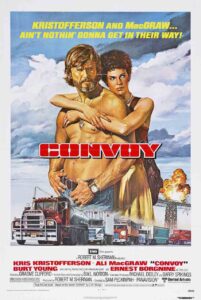
Films such as “Smokey and the Bandit” (1977), “Breaker! Breaker!” (1977), “Citizens Band” (a.k.a. “Handle with Care”) (1977) and “Convoy” (1978), made heavy reference to the phenomenon, as did television series such as “Movin’ On” (debuted in 1974), “The Dukes of Hazzard” (debuted in 1979) and the animated series “CB Bears” (debuted in 1977) helped cement CB radio’s status as a nationwide craze in the United States over the mid- to late-1970s.
The phenomenon also inspired numerous country music songs.
AVAILABILITY
CB radios are readily available online and at big box stores. Many truck stops also carry them. Units can range in price from below $100 to several hundred dollars, depending on the model.
According to bestreviews.com, the “Best of the Best” pick is a Uniden PC78LTX 40-channel Trucker’s CB. It’s available for $119 on Amazon.com
Coming in second as the “Best Bang for the Buck” is the Uniden PRO520XL Pro Series 40-Channel. A quick internet search shows that this unit can be purchased for between $70 and $120 at various merchants.
No matter the price, back in Colorado, Bolick said he remains thankful for his CB.
“CBs are an important tool for truckers and 4wheelers alike,” he said. “I’ve ran a CB for 40 years in my truck and auto. If you don’t own one, buy one. If you have one, then turn it on. You never know what situation you’ll be in that you’ll need help. And also be able to help a fellow trucker.”
Following are the film trailers for “Breaker! Breaker!” and “Convoy.”
Born in Pine Bluff, Arkansas, and raised in East Texas, John Worthen returned to his home state to attend college in 1998 and decided to make his life in The Natural State. Worthen is a 20-year veteran of the journalism industry and has covered just about every topic there is. He has a passion for writing and telling stories. He has worked as a beat reporter and bureau chief for a statewide newspaper and as managing editor of a regional newspaper in Arkansas. Additionally, Worthen has been a prolific freelance journalist for two decades, and has been published in several travel magazines and on travel websites.







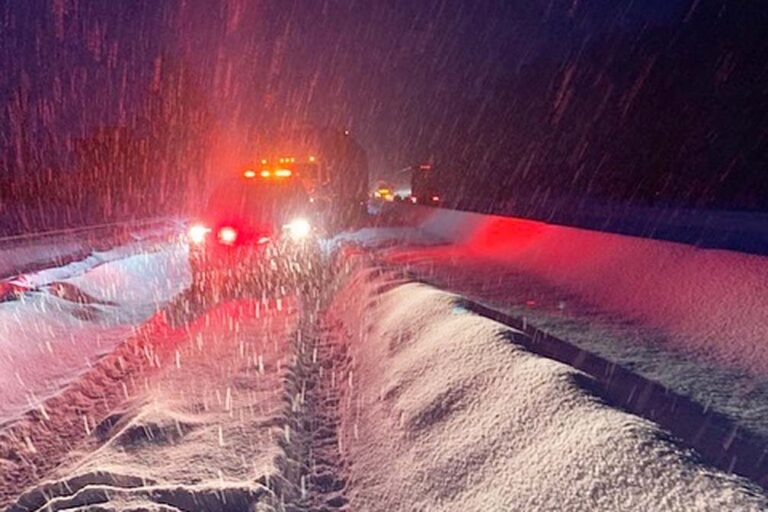

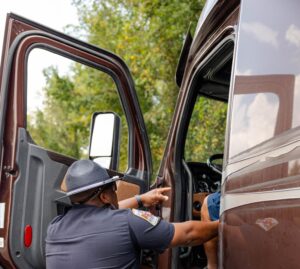

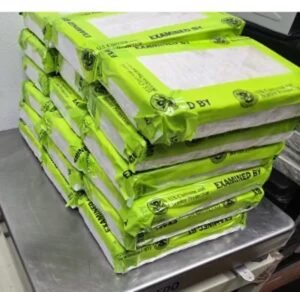
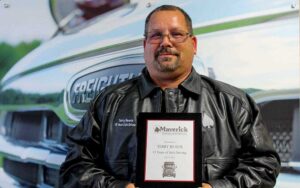

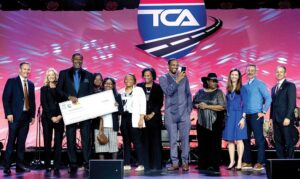
it’s a SHAME how a person calling themselves a driver(truck driver) would ever be on the road without a cb ,,,,that’s the first thing to hookup ,,,,no cb means no eyes and ears for conditions up ahead ,,,why In the he&+ would a driver even drive with out one ,,,,,I wouldn’t ,,,,,But it. seems to me that it should be a law that ever vehicle that requires a commercial license to drive should be required to have a cb radio installed in it …..My understanding or a professional driver ,,,,is that if you knowingly let another driver become involved In a accident and or the death of another person,,,,just like running over a pedestrian is and can be a vehicular manslaughter,,, you can be held in part responsible for such …..or that’s the way I hold myself to anyway ….old you may say….I say hell yea…we weren’t out there running over each other …